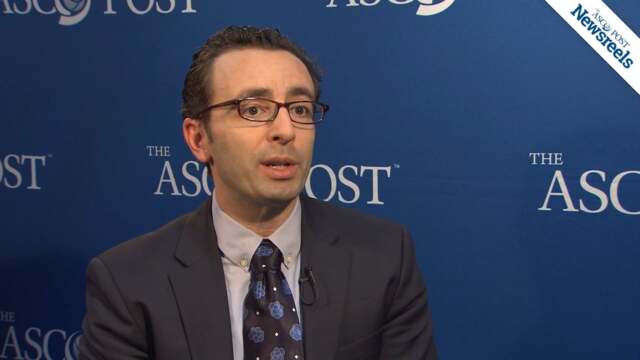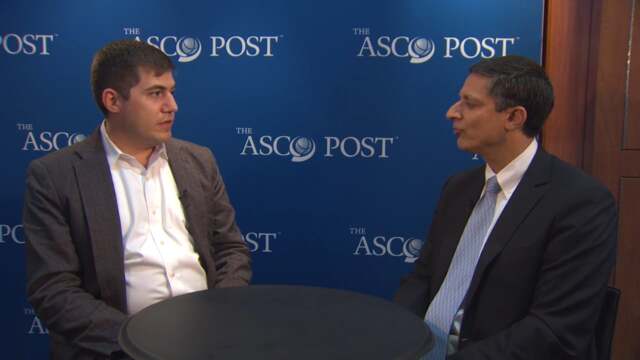Martin Schrappe, MD, on Childhood ALL: Study Results on Reducing Treatment Burden
2016 ASH Annual Meeting & Exposition
Martin Schrappe, MD, of Christian-Albrechts University Kiel, discusses study findings on reduced intensity delayed intensification in standard-risk patients defined by minimal residual disease in childhood acute lymphoblastic leukemia (Abstract 4).
Laurie H. Sehn, MD, MPH, of the British Columbia Cancer Agency, discusses agents in the pipeline for follicular lymphoma, including drugs targeting the immune microenvironment, novel monoclonal antibodies, and emerging immunotherapeutics.
Joshua Brody, MD, of the Icahn School of Medicine at Mount Sinai, summarizes important data on passive and active immunotherapy (Abstracts 1213, 1214, 1215, 1216, 1217, 1218).
Jonathon Cohen, MD, and Sagar Lonial, MD, both of Emory University, discuss study findings on R-CHOP vs DA-EPOCH-R and molecular analysis of untreated diffuse large B-cell lymphoma (Abstract 469).
Marie Bleakley, MD, PhD, of Fred Hutchinson Cancer Research Center, discusses data on using naive T-cell depletion of peripheral blood stem cells, which led to very low rates of chronic graft-vs-host-disease and high survival (Abstract 668).
Steven Le Gouill, MD, PhD, of Nantes University Hospital and INSERM, discusses study findings from the Lysa/Goelams Group on rituximab maintenance after autologous stem cell transplantation in younger patients with mantle cell lymphoma (Abstract 145).





